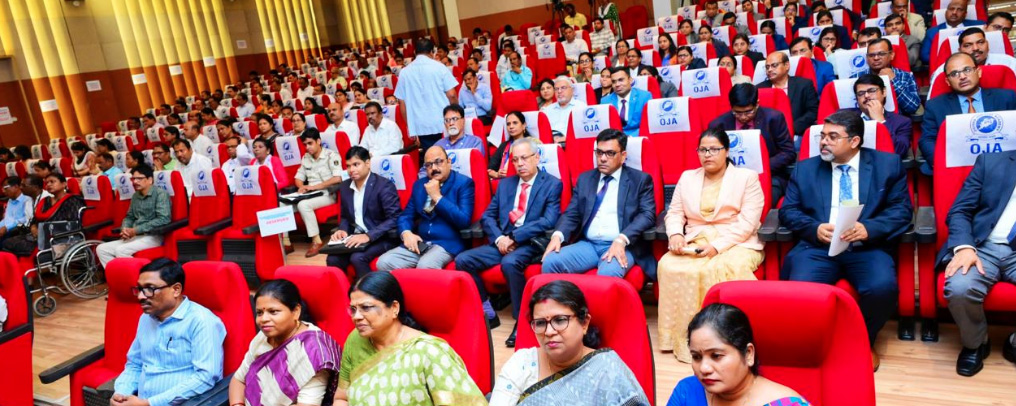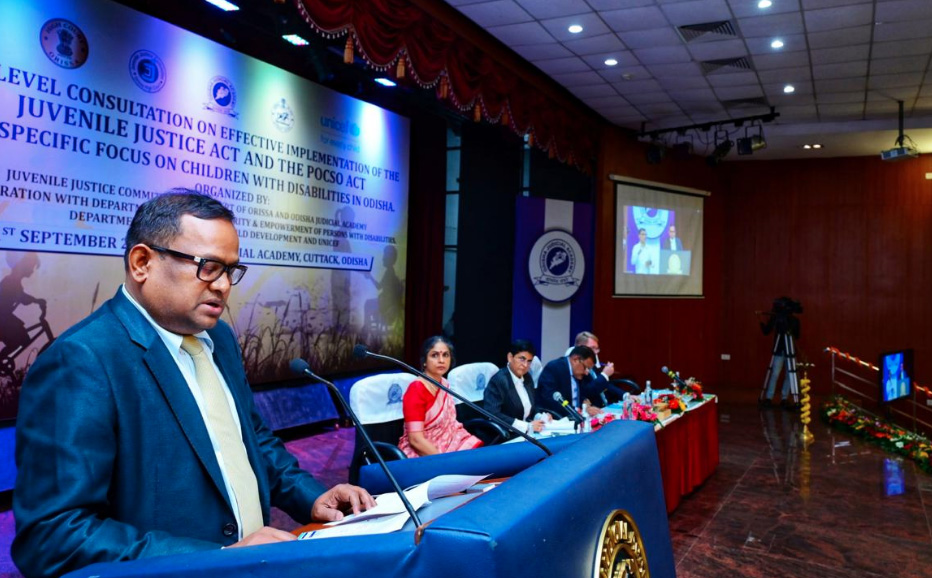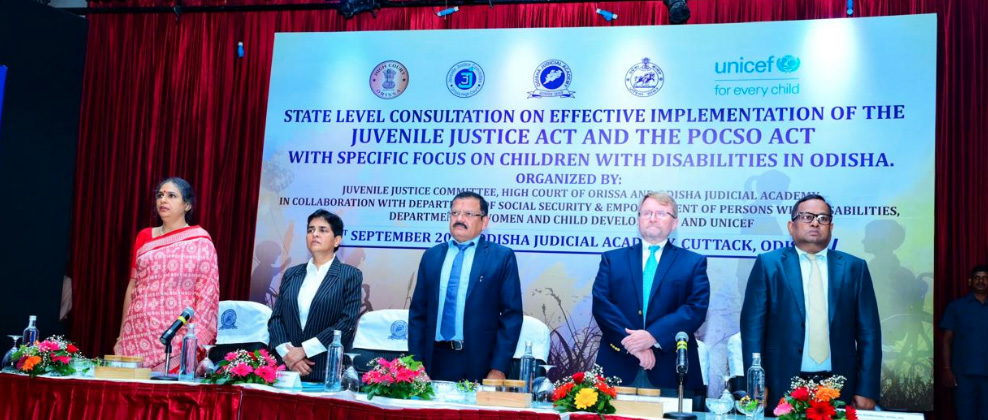Cuttack: Chief Justice Orissa High Court Justice Chakrdhari Sharan Singh participating in the Ninth Annual Partnership Consultation Conference on Protection of Dibyang Children held at Odisha Judicial Academy in Cuttack on 1 September 2024 on virtual mode puts emphasis on greater inclusion of disabled children in juvenile justice system.
Chief Justice has urged all stakeholders to commit to greater inclusion of underprivileged children in the juvenile justice system.
Chief Justice emphasized on addressing the unique needs and challenges of such children. He said, “We have to recognize that Dibyang children face certain special problems and vulnerabilities that require special attention and care. A comprehensive approach needs to be taken care of for effective implementation of the provisions of the relevant laws keeping in mind the specific needs of Dibyang children. He further said that as we work towards a just and equitable society, let’s be committed to uphold the rights of all children, especially children with disabilities.
On the occasion, Justice Debbrata Dash Chairman Juvenile Justice Committee said that it is not only the Dibyangs who have problems with them but also our current system lacks certain opportunities in providing equal treatment and facilities to Divyangs. The purpose of today’s discussion is to identify these gaps and fill them, so that our future Can be improved.
Participating in the program, Miss Justice Savitri Ratho and Justice Aditya Kumar Mahapatra, members of Juvenile Justice Committee discussed vividly about the problems and rights of the disabled children (Divyang) and gave a call to all the stakeholders to get united to make a comprehensive and combined effort to solve the problems of the disabled children. On the occasion, the participants highlighted the steps taken by the state government to protect children under the Juvenile Justice Act- Children in need of care and protection (CNCP) and other categories of disabled children in conflict with law.
A study conducted by UNICEF on August 2022 on children with disabilities revealed that one out of every three children in institutions is disabled. In addition, the number of disabled children in childcare institutions is disproportionate with some statistics suggesting that 25 percent of all children in such institutions face intellectual or mental health disabilities. According to studies, the death rate of children with disabilities in institutional care is 100 times higher than that of other children.

William Hanlon Junior, UNICEF Chief of field office of Odisha said that excluding disabled children means undermining our global commitment to leave no one behind. We must reiterate our commitment to create an enabling environment for inclusive, safe and empowered children with disabilities.

On this occasion, Principal Secretary of the Department of Social Security and Empowerment of the Disabled, Bishnupada Sethi said that the problem of about 60 to 70 lakh Dibyangas in Odisha are now being emphasized on their needs and contribution. If we want our state to become a developed state and become a $5 billion economy by 2036 and a $1.5 trillion economy by 2047, we have to reiterate our commitment to the poor.”
Shubha Sharma, Secretary, Department of Women and Child Development highlighted the various initiatives being taken by her department and said that the department will conduct a vulnerability survey to identify at-risk and disabled children in collaboration with UNICEF, Social Security and Empowerment of Persons with Disabilities (SSEPD). Based on these data the Government will prepare a joint action plan.
High Court Judges being the members of the Juvenile Justice Committee, and other companion Judges of the High Court, senior government officials, legal experts, members of civil society organizations and disability rights activists participated in the conference to discuss strategies for the protection of children with disabilities.
Justice Murahari Sri Raman, the Member of the Juvenile Justice Committee proposing vote of thanks highlighted on the aspect that the essence of the conference will be fruitful if the stakeholders will translate the suggestions of the conference into practice while dealing with the difficulties of the disabled children.


